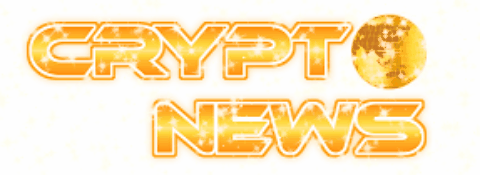
- Asian Cooperation develops new KYC Concept!
- BP: Blockchain Experiment on the Energy Market!
- Malta plans to store University Certificates on Blockchain!
- tØ: The first regulated Exchange for ICOs starts trading!


A cooperation between the banks OCBC Bank, HSBC Singapore and the Mitsubishi UFJ Financial Group (MUFG), as well as the Info-communications Media Development Authority (IDMA), a regulator from Singapore, have developed a blockchain proof of concept to accelerate the know-your-customer process (KYC).
The three banks and the regulator have jointly announced the Customer Identification System. The proof-of-concept test phase ran from February to May this year.
The goal was to get rid of the heavy paperwork and create a completely digitized solution. This would speed up the entire process a lot. To make it easier for the bank to identify a customer, it helps if the necessary information can be retrieved via a shared ledger where it is kept and updated over time.
The IDMA, which is responsible for the regulation of state media in Singapore, also expresses the successful work of the state in the areas of blockchain and crypto. It therefore supports the ambitious use of new technologies to transform Singapore's economy. The aim is to build up a dynamic digital economy for a Smart Nation. Optimizing the KYC process with the help of the blockchain is exactly the kind of innovation that drives this goal forward. Financial institutions would need innovative FinTech solutions to improve productivity and provide their customers with a better experience.
IDMA CEO Tan Kiat How said:
The KYC concept in blockchain applications has recently been the focus of attention. Among other things, the application of this is one of the key points of the Japanese law on the regulation of the crypto market which came into force at the beginning of October.

David Eyton, the British Petroleum (BP) technology leader, the British industry giant in the petroleum, gas and energy industry, is planning a test of blockchain on the energy market. He told the magazine Financial Times.
In the discussion, he said that the blockchain can be a crucial building block of future trade on the energy market. Early application and active use of this technology can provide BP with a competitive advantage and help to maintain its primacy among the energy groups.
BP is currently working with the Austrian energy company Wien Energie and the Italian oil company Eni Trading & Shipping on a test run of the blockchain on a platform for energy trading, developed by the Canadian blockchain company BTL. According to Eyton, first attempts have already been successfully completed, but the test run as a whole has not yet been completed.
The blockchain can enter the energy industry in many ways, says Eyton. The great advantage of the blockchain is determined by the manner in which transactions take place. Speed, transparency and security make this technology a true advance. However, an application of the blockchain is also conceivable in other areas of the industry, for example the processing of processes also within the own enterprise.
David Eyton also said:
In addition, David Eyton also understands that he does not consider the project including the test run as an exclusive matter, but rather wants to open the group for outsiders. Other companies from the energy sector, for example, are welcome to join Blockchain in a wider network.

The government in Malta plans to use a blockchain to store academic records.
The Ministry of Education and Labor has signed a contract with the blockchain startup Learning Machine to develop a blockchain prototype for recording certificates. This prototype platform is intended not only for safe storage, but also to enable academic work to be demonstrated in a simple manner. This could effectively combat abuse or hardship. At the same time, the credibility of the documents would be strengthened, which would be an advantage for international employees or students.
The platform is to be based on the so-called Blockcerts Standard (open source), which was developed by the startup together with the MIT Media Lab in 2016.
Blockcerts is designed to enable users to share their academic achievements by downloading the free app in their wallet and to share or verify, as needed. The records, like many other wallets, are managed using the Public and Private Keys. If the original recordings or the university itself do not exist anymore, then this would not be a problem as the recordings are always stored on the blockchain. Independence from a single institution would thus be further reduced.


tØ becomes the first regulated exchange for securities based on blockchain tokens. The stock market will not only allow trading on its own platform, but also serve as a trading system for other stock exchanges. The company promises a trading volume of $ 2 billion over the next 12 months. Is this realistic? Can the appeal of the ICOs be transferred to a regulated platform?
There are not many blockchain applications that are as close as the stock trading. Since at least 2013 there have been plans and attempts to make a blockchain the basis of securities transactions.
As with Bitcoin, the main thing is to prevent double spends, which is the twofold output of the same value unit. In ordinary traditional stock trading, several middlemen are between buyer and seller to prevent either side from withdrawing its digital delivery, whether money or securities, after receiving the counter party's. These middlemen are necessary to ensure that money and shares have actually and irrevocably arrived. However, they also increase the fees and the duration of the settlement. This will raise the threshold of the investment and rob the markets of liquidity.
Bitcoin - and the blockchain - make double-spends fundamentally impossible. Altcoin stock exchanges have long been demonstrating how the stock market could end up when it happens on a blockchain basis. Since the emergence of ICOs, it is no longer only Aldcoins, but increasingly tokens that represent a company, that are traded. While the established finance industry praises blockchain in the same breath and condemns virtual currencies, a revolution in securities trading has been born on the Altcoin exchanges.
At present, this revolution is still almost completely unregulated. This does not appeal to everyone and also leads to daring to clearly deceptive business models.
In harmony with the supervision
This could change with tØ. The platform is being developed by a subsidiary of Overstock, the US shipping company, which was the first large company to accept Bitcoin in early 2014. According to the Overstock chief and Bitcoin supporter Patrick Byrnes, tØ is to finally bring the advantages of bitcoin transactions into the stock market.
On September 27, tØ announced the launch of an Alternative Trading System (ATS). With this, cryptographic blockchain tokens are to be classified, regulated and traded as securities in the USA for the first time. Together with an investment bank and a Fintech company, tØ is actively cooperating with the exchange supervisory authority SEC and the financial market supervisory authority FINRA. The claim is to become an alternative to the large securities exchanges like Nasdaq.
In the interview with Coindesk, Emma Channing, CEO of a participating company, said the ATS will see a trade volume of 2 billion dollars over the next 12 months. This corresponds to the sum invested so far in ICOs. According to Byrne, tØ is to reduce the transaction costs in stock trading by 80 to 90 percent. At the same time, trade and settlement should coincide instead of two to three days, as with traditional exchanges. Both advantages will increase liquidity in the markets and improve pricing.
tØ carried out a pilot project in December 2016 by issuing a share to its own company. In the process, approximately 1.6 million dollars were collected. In view of the current ICO trend in which many start-ups without a genuine product collect two or even three-digit millions, this sum is not necessarily sensational. The gray, unregulated, high-globular blockchain markets have long since moved past tØ.
The platform still has a trump in the sleeve. As the president of tØ, Joseph Cammarata, stated in July, the ATS is confirmed by the supervisor and compatible with all other stock exchange systems. "We are already integrated into every stock exchange in the USA. So if you want to act on a national exchange, we are already connected to it. "
The charm of the ICOs
tØ is therefore more than a platform for trading with blockchain tokens. It is a kind of infrastructure that can trade blockchain tokens to all US stock exchanges. But is this enough to justify the assertion that, on a one-lane basis, the volume of trade in all the ICOs is the same as that of all ICOs within 12 months?
There are reasons for this. For this reason, the ICOs have hitherto been the pleasure of a relatively small group, which is justifiable due to the increase in prices for crypto scripts. If blockchain tokens can be brought to the regulated stock markets, the pool of potential traders will increase dramatically. And if tØ actually delivers the promised benefits, it should only be a matter of time before the new system comes through.
On the other hand, it is questionable whether a perfectly regulated exchange such as tØ can reproduce the appeal of the ICOs. The technology behind the tokens published by ICO is transparent and open source, the token are (largely) fungible, they can be bought and traded pseudonym, permission-free and censor-resistant. ICO tokens are like Bitcoin, but they are just a kind of securities. Everyone in the world can participate in them without registering anywhere. All he needs is an Ethereum wallet.
At tØ, on the other hand, one must already prove its identity when registering. In order to act, as far as I know, one must deposit Fiat. Allowed are currently only Americans anyway. Anyone who wishes to issue securities requires the permission of the platform as well as the supervision. tØ may offer the security of traditional stock markets. But it also sacrifices all the charm that ICOs have because they leave behind the limitations of these traditional markets.
Furthermore, it is not quite clear on which technical platform tØ is used. There was talk about Counterparty on the basis of Bitcoin, but that was a while ago, and was then overlaid by rumors of its own blockchain. The question is also whether the buyers of these blockchain securities will be able to freely transfer the token, such as Bitcoin, ether, or any ERC20 token. This is probably not the case as it is difficult to reconcile with a regulated stock market. How it would be difficult at all to translate the stimulus of the ICOs into a fully regulated environment.

I wish you all a lovely Wednesday!!!
ⓁⓄⓥⒺ & ⓁⒾⒼⒽⓉ
Best regards
@danyelk
.gif)


